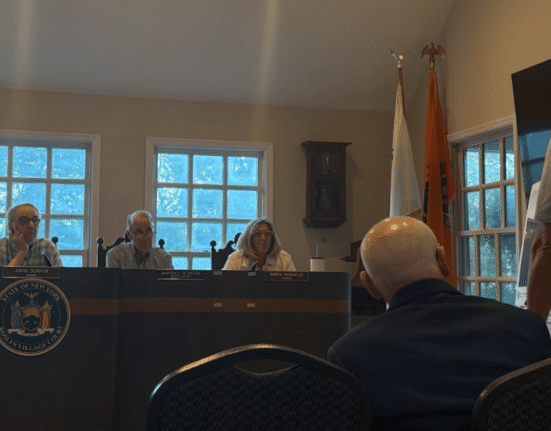When a Pueblo West resident got his property tax bill this year, he was floored.
The taxes on John Wedding’s Pueblo West home were the same as last year, but the taxes on a vacant 1-acre lot he owns next to his home increased by more than 400%.
“It went from $299.78 last year to more than $1,221.70 this year. I am a senior citizen,” Wedding told the Chieftain.
Wedding said he won’t be able to qualify for the homestead property tax exemption afforded to Colorado senior citizens until he has lived 10 years at his current residence, which won’t be until next year.
“I don’t usually get upset, but that’s immoral to raise it that much in one year. That’s the definition of theft,” he said.
Why Pueblo County residents are seeing the vacant land tax increase
Pueblo County Assessor Frank Beltran said about 1,500 Pueblo County residents affected by a 2021 law should have received a letter last March warning of the pending increase on this year’s tax bill.
The letter, penned by Gavin Wolny, deputy county attorney, indicates, “In 2021, the Colorado General Assembly passed House Bill 21-1061, which narrowed the definition of residential land by making it harder for commonly owned unimproved parcels to receive a residential classification.”
Previously, parcels connected to a single qualifying residential parcel, like Wedding’s, were classified as residential regardless of their character. Now, to be classified as residential, the parcels must contain a “related improvement that is essential to the use of the residential improvement on contiguous residential land.”
Such improvements could be a permanent structure such as a shed or garage on a foundation, a septic tank or leach field and could even be a perimeter fence, Beltran said. However, regulations in some communities don’t allow a shed or garage without a home on the property, he said.
The vacant lot next to Wedding’s home is no longer considered residential, so instead of being taxed at the 6.7% assessment rate, it is now taxed at the 27.9% rate, Beltran explained.
Why has it taken this long for the 2021 law to go into effect?
In the years following the passage of the bill, “the Pueblo County Assessor’s office was unable to reclassify completely all parcels affected by the change in the law,” according to Wolny’s letter.
Beltran said his office was short-staffed, but now staffers are taking steps to correctly classify all parcels in Pueblo County.
How to protest your property valuation
Beltran said overall, in both commercial and residential categories, Pueblo County property tax bills increased an average of 5%.
“Some neighborhoods went down, some went up and some stayed the same,” he explained. “It depends where you are.”
Residents can protest their property valuations, whether they believe they are too high or too low, by filling out a real property protest form that comes with the tax bill. Forms can be sent by mail or email, or dropped off in person at the assessor’s office, 215 W. 10th St., room 241, anytime between 7:30 a.m. and 4 p.m., May 1 through June 8.
Beltran said his office fielded more than 5,000 protests in 2023. This year, he said he expects the number will be around 2,000.
Wedding said he could afford the payment, but when he went and paid his property tax, he protested by attaching a tea bag to his payment in homage to the Boston Tea Party. It was a nod to 1773 when U.S. colonists dumped English tea into the Boston Harbor in protest of taxation without representation.
Wedding also said he notified his state senator and Gov. Jared Polis about his displeasure.
“Whatever they are doing in Denver is not working. Somebody was not thinking this through,” he said.
Chieftain reporter Tracy Harmon covers business news. She can be reached by email at tharmon@chieftain.com or via X at x.com/tracywumps. Support local news, subscribe to The Pueblo Chieftain at subscribe.chieftain.com.







